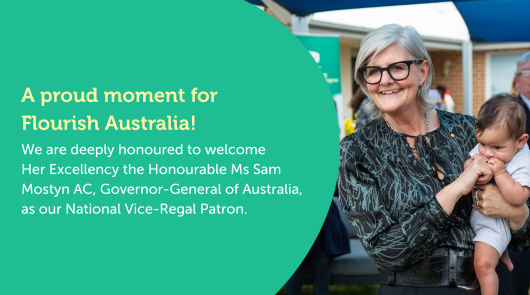
As Panorama magazine represents Flourish Australia’s values, we strive to use strengths-based language in every article, regardless of its source. Viewing recovery in a person-led, strengths-based way has shaped the way the organisation offers support.
While the mainstream media is making leaps and bounds in regards to how they depict people with mental health issues, they still have a long way to go when it comes to using humanising, strengths-based language. One easy way to use strengths-based language is to phrase things in a person-led manner. So instead of saying “a homeless person,” you would say “a person who is homeless.” Instead of “a mentally ill person,” you would say “a person experiencing a mental health issue.” It’s vital not to reduce anybody to an illness or a diagnosis.
As recovery doesn’t always have a medical or a pharmaceutical component, it’s usually best to avoid using medicalised language when discussing mental health issues. Every recovery is different, and you are the only one who can define what it means to you. It can be all too easy to focus on the obstacles we face. Strengths-based language highlights how we can use our innate skills and abilities to get to where we want to be and become who we want to be. It empowers individuals to see themselves as masters of their own destiny, rather than being helplessly swept along by life. Strength implies hope and capability.
The majority of people working for Flourish Australia have lived experience of a mental health issue that they’re managing through means such as medication and talking therapy. However, a person’s diagnosis is never their entirety. A diagnosis can provide a good starting point for a recovery journey, true, but it shouldn’t define you, your future, or what you are capable of. Sure, link up with every service you need and bulk out your support network but at the end of the day, you are the one who decides your future.
Panorama magazine always welcomes story submissions but the most common issue we encounter with potential articles is a lack of strengths-based language. It’s all too common for authors to identify with their illness or a label and depict their future as nothing more than a bleak, hopeless, uphill struggle. Things may certainly get tough at times but there’s nothing to be gained by ruling out your chances of succeeding in life before giving it your best shot. We are powerful and with the right support, we can do amazing things.
Have you tried applying strengths-based language to your recovery journey? It might just change your life.
By Grant J Everett, Panorama magazine
Talk to us today
For more information, contact us on 1300 779 270 or make an enquiry now.


